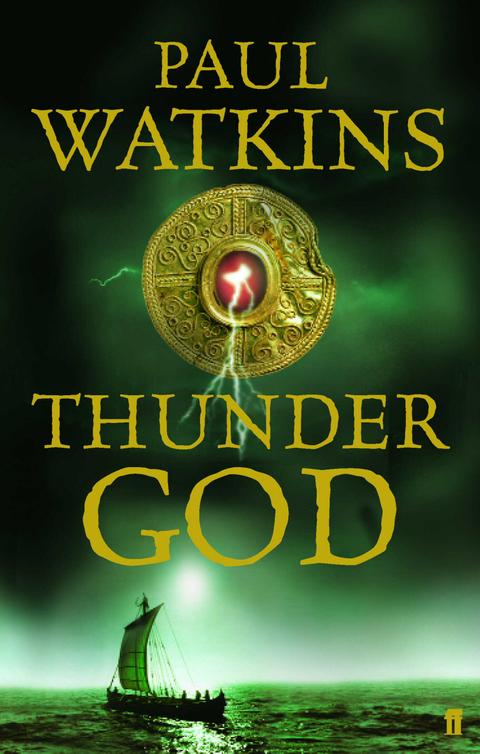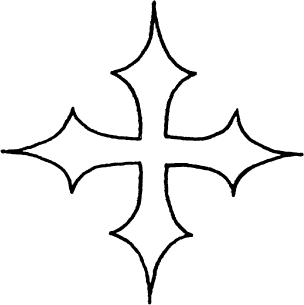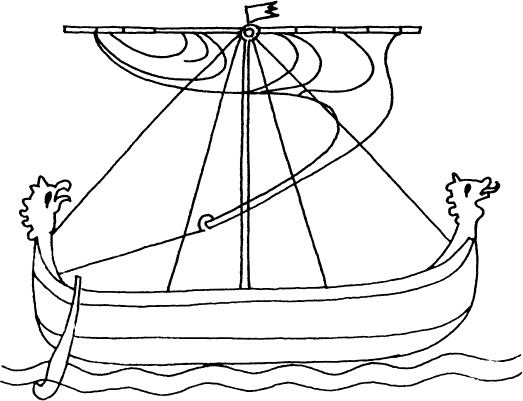Thunder God
Authors: Paul Watkins



PAUL WATKINS


- Title Page
- Dedication
- Norway, 975
AD - Epigraph
- Part I
- ‘There are no ghosts’
- I woke up in the temple,
- Halfdan had come to Miklagard
- Two months later, we had come as far as Novgorod
- Part II
- I woke before dawn
- Two days later, Olaf and I set sail
- Five days later, we dropped anchor in the bay at Altvik
- Part III
- I was in the temple, sweeping the floor
- Morning fog drifted across the beach
- At dawn, we spotted the Drakkar
- We ran through the tunnel
- Part IV
- Five days we ran south with the wind
- I woke up slumped over the steerboard
- It was months before we saw our home again
- Author’s Note
- About the Author
- Copyright
This book is for W.D.
With thanks to C.R.W., C.B., G.P.-T. and D.R.
Wealth dies.
Friends die.
One day you too will die.
But the thing that never dies
is the judgement on how
you spent your life.
Havamal,
The Way of the Norseman
Norway
975
AD
âThere are no ghosts,' my mother said, ânor demons, or monsters, or devils.' Every night, kneeling by the bed, she whispered these words to my sister and me. Darkness pooled around us, held back only by the weak and greasy flame of a lamp.
The last thing I would see were her lips, pursed as if to kiss the fire, and ripples of shadow round her eyes. I would hear the rustle of her breath, the pop of the flame as it went out and the smell of smoke as it brushed past my face.
When she left, padding barefoot across the floor, I would take back what she had said. I made my nightly apology to the spirits I felt sure were hovering in the air around me, just beyond the grasp of human senses.
*
When daylight came, my friends and my sister and I would search the fields and rocks and streams above the town, which marked the border line between the world of gods and men.
There were four of us.
My sister Kari was tall and thin, with crow-black hair and eyes the mysterious blue of glacier ice. By the age of twelve, she had stirred in many boys the first confusions of love.
My best friend, a square-faced boy named Olaf, had no time
for such distractions. It was his certainty that we would find this hidden gateway to the other world which drove us out onto the fields, no matter what the weather. We followed his stocky frame, already the body of a man, topped by blonde and unkempt hair which stuck straight up on his head, as if he were hanging upside down. Often he would turn to make sure that we were not lagging behind, fierce eyes squinting, as if permanently blinded by the light of his own private sun.
Stumbling at the back, as usual, would be a boy named Ingolf, whose belly hung in a suspended avalanche of fat over his shapeless trousers, hiding bloated thighs which chafed so badly that he had to wipe them with butter before dressing every morning. Ingolf sniffled constantly from colds or pollen sickness. He did not like being up on the high ground and the relief on his face as we were heading home was clear to see. The tales Olaf told us â of blue-skinned ghosts and mountain hags who cut the veins from sleeping children and used them as thread to make their clothes â had frightened him beyond all curiosity.
Ingolf's father, who ran the alehouse, was ashamed of his son's weight and runny nose. Sometimes he chased his squealing boy around the garden, as if he were hunting a pig. Ingolf's mother was a sharp-faced woman named Tola, who made a living by travelling from house to house after dark, selling fortunes and good-luck trinkets made from bird bones. On moonlit nights, she drifted through the waist-deep mist that clogged the village streets. There were rumours that she left her legs behind when she went out, propping them against the door like walking sticks.
*
Stories of the land we sensed but could not see were like a labyrinth of tunnels running just beneath the mud streets of our town. Some of its inhabitants were named and shaped, reachable with offerings and prayers. Others could only be
guessed at, remaining distant as stars. None were harmless and many so dangerous that the adults would not even tell us what they were.
But this only fuelled our curiosity. Hoping to learn more, we followed the weekly procession to the temple, which lay at the far end of the fields. It was a long, low building, with a turf roof, on which dandelions gathered in the summer.
The people taking part in the ceremony moved in a solemn, shuffling procession, all of our fathers among them. The group was always led by the same two men. One was Olaf's
foster-father
, Tostig, with hands so old and frail they seemed like tiny, featherless birds. He leaned on the arm of his assistant, Guthrun, red-faced and barrel-chested, with long, unkempt hair and shaggy brows that sheltered eyes the same green as a cat's. When not assisting Tostig, Guthrun was a blacksmith. The smell of his forge hung over our houses in damp weather, and we were woken by the rhythmic clanging of hammer on anvil early in those foggy mornings.
Children were not allowed inside the temple, no matter how much we begged. So we would peer through the doorway at long benches where people took their places. At one end, draped in shadow, stood the trunks of two trees, stripped of their branches. A face had been cut into the top of each pillar, with bulging eyes and inlaid teeth from wolves. One pillar represented the male gods, like Thor, Odin and Frey. The other stood for female gods, such as Freya, Idunn and Hel.
For the first few minutes, while a fire was kindled to warm the temple, the door would be left open. During this time, Guthrun and Tostig would cut a circle in the dirt around the pillars, using the tip of an old sword. Then they laid an iron ring on the ground, on top of which they set a bowl, filling it with water from a jug. Into this water, they dipped bundles of hawthorn twigs and flicked the water around the base of the
pillars. What happened after that we did not know, as the door would be shut in our faces. We would press our ears to the heavy slabs of wood, straining to hear what was said.
Afterwards, when the temple doors were opened and people made their way home, we would follow them back down the hill. Our fathers would carry us on their backs, happy to put aside solemnity now that the praying was done.
It was Olaf, rather than my own parents, who became the source of everything I knew about the gods to whom our fathers prayed.
He had coaxed his knowledge from Tostig, along with the old man's warnings not to dabble in a world he did not understand. But Olaf didn't care about the risks. He believed he led a charmed life, and often reminded us how he had already cheated death once.
He had been found one winter, washed up on the beach in a rowboat so sheathed with ice it seemed to have been made of glass. The man and woman whom they found on board, who must have been his parents, were frozen to death. They had been washed out to sea, or escaped from a larger ship that was sinking. From the condition of the boat, they must have been out on the water a while. The mother had died first and the father, with no other way to nourish the infant, had made cuts in his chest and let his son feed off his blood until the cold clamped down on his heart. When Tostig found them, Olaf himself was close to death. Tostig had to prise him from his father's frozen arms.
Tostig adopted the boy, having no children of his own. As keeper of the temple, Tostig raised his foster son on stories of the seven Norse worlds and all the living things which they contained.
Olaf proved a good pupil. It was from him we heard of the Nissen, tiny elves who lived around the house and for whom
bowls of grain were left at certain times of year. There were the Hulder â who could only be told apart from humans by the tails they hid beneath their clothes. From Olaf came the story of the timid Fossegrinnen, who lived behind waterfalls and could be tempted out with gifts of food, which they repaid with their beautiful songs. Where mountain lakes mirrored the sky, Olaf warned us to keep clear of the shape-shifting Nokka, who dragged people down beneath the milky-silted water. These creatures, Tostig had told him, were to be found all over the country, but the story which most captured our imagination belonged only to our town.
This was the legend of Sasser Greycloak, who had once been a man but lived now as a beast out on the fringes of our world. Searching would not find him, said Olaf. When the time came, Greycloak would find us.
Olaf also spoke of a great source, from which the whole Norse world had sprung. Tostig had mentioned this only in passing and could not be persuaded to say more about it. Olaf often spoke of what the source might be, what it looked like, and what powers it might bring to the person who knew its hiding place. More than anything else, this became the object of his searching, though he did not even know what he was looking for.
Sometimes I wondered if what Olaf really wanted to find were the spirits of his parents, to speak with them, and learn how he had come to be washed up on the beach, lips smeared with his dying father's blood.
None of Olaf's stories frightened Kari. Even though she was only one year older, I looked up to her as I would have done to an adult. She seemed, unlike myself, a perfect combination of our father's ability to be awed by the smallest of things and our mother's colder reasoning, which knew the difference between reality and what we conjured from imagination.
Kari was always stopping to examine things which others had walked past, in our rush to reach a certain tree or rock or stream rumoured to be the hiding place of some wish-granting creature. It was thanks to Kari that we made our only true discoveries â nests of ptarmigan, patches of whortleberries hidden beneath the purple-flowered heather and the branched white bones of reindeer antlers.
I had joined this group of wanderers with more recklessness than sense. When we were up there on the high ground, I did not care what monsters we might lure from their caves. I did not think about the risk. Only at night, when I relived the adventures of the day, did the dangers take shape in my mind. At first, I so unnerved myself that I could barely find the courage to go out on the following morning. But when search after search turned up nothing, I began to grow weary of the hunt, as Kari had done long before. These days, she only came along to keep me company.
Of the four of us, only Olaf never tired, even after months of wandering across the rocky slopes, where windblown trees grew hunchbacked and wind roared along the knife-edge of the glaciers. With Olaf in the lead, we searched in dripping caves, at sources of streams which bubbled from their beds of moss, and in the boulder-choked gulleys of the Grimsvoss mountains, which rose almost sheer from the ground.
If Ingolf came at all, he usually left early, the time of his departing always marked in advance by his mother, who told him to be back before the shadow of the Grimsvoss reached the alehouse roof.
Later, Kari and I would head for home, while Olaf stayed behind. There were times when I looked back and saw him watching Kari and me, disappointment clear on his face, but refusing to give up the search.
The routine of those days began to crumble. I was leaving
them behind. I knew that in the time ahead, some friendships would grow stronger, while others would vanish, like the twisting flame my mother kissed away when she wrapped my sleeping world in ghostless dark.
*
But that all changed one night, deep in the blind man's black, when I heard something scratching at the door. I also heard my name, whispered on the hissing wind of a storm coming down from the mountains.
Without a sound, I left my bed and crept past my dreaming family. When I lifted the latch and looked outside, I saw the storm riding out of the hills, bellowing thunder and walking on the crooked legs of lightning. I watched the rain approach, grey air seething like the crest of a wave. Just as the storm broke overhead, I stepped outside, looking for the one who called my name.
Rain thrashed against my body, pouring from my fingertips in silver threads. As a thunderclap split the sky, I caught sight of a figure striding out across the fields. He wore a pale shroud, which streamed behind him in the wind, and a pointed hood pulled down over his eyes.
I knew him.
It was Sasser Greycloak, heading for the Grimsvoss, shoulders braced against the roaring gale. Suddenly, all doubts about the spirit world were swept aside.
I set out to follow him, breathing through clenched teeth as the rain spat in my face. I ran as fast as I could, stumbling over the uneven ground and gaining on him with each step. Just as I breathed in, ready to call out his name, I realised that his shape was changing. His stride across the fields became the gait of some half-human thing, a flesh-twisted nightmare, conjured from the storm itself.
All my courage left me. Horror spread like black wings
behind my ribs. I skidded in the mud, ready to run the other way, but slipped and shouted as I fell.
The figure stopped. Slowly he turned.
I screamed but never saw his face.
In that moment, the air filled with greenish-yellow light. It closed about me, writhing like something in pain. I heard no sound. The earth fell away beneath my feet. A bolt of lightning crackled through the air. Its jagged spear punched through my chest, branching fire along the tunnels of my veins until sparks flew from my finger tips. My fingernails melted as if they were chips of ice. Skin fell away in blazing shreds. Bone-white light filled my eyes and my body rose into the sky, clutched in the wild storm's claw.
*
I woke up to a world of silence. My eyes slowly focused on a ribbon of smoke, as it rose from a smouldering log. It took me a moment to realise I was home, and that the smoke came from our fireplace. Through the open door I saw my mother in the garden, pruning herbs which grew against the wall, pocketed in morning sun and sheltered from the wind. The crossbeams of our house were hung with bunches of these herbs, drying in the smokey air. Peppermint, goat weed, tansy, feverfew, marigold. My mother moved carefully among them, snipping away with a scissors which she kept tied to her belt, along with the house key and a wooden box filled with three bone needles. Her grey-blonde hair fell across her neck.
Then Kari's face appeared above me. She blinked in astonishment. âHe is awake!' she shouted. Then she ran outside, grabbing my mother by the arm.
A moment later, my mother stepped inside the house, brushing the dirt from her palms. She came and knelt beside my bed and ran her pollen-dusty fingers through my hair. They smelled of lemon balm and rosemary.
âI do not understand why I am still alive,' I said.
âNeither do we,' she replied, and went on to say that when my father found me, my clothes had been torn to rags by the lightning but my body was untouched.
At first, I did not believe her. I held up my hand and looked at it, remembering what I had seen, but there was not a mark on me.
âHakon?' asked my sister.

